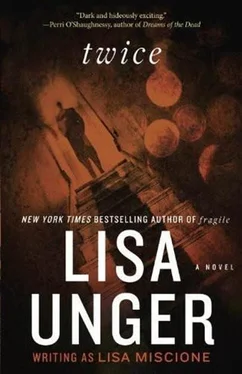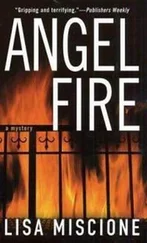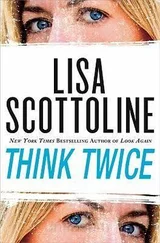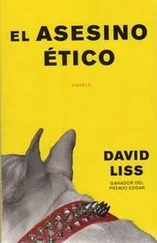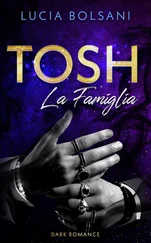Lisa Miscione - Twice
Здесь есть возможность читать онлайн «Lisa Miscione - Twice» весь текст электронной книги совершенно бесплатно (целиком полную версию без сокращений). В некоторых случаях можно слушать аудио, скачать через торрент в формате fb2 и присутствует краткое содержание. Жанр: Триллер, на английском языке. Описание произведения, (предисловие) а так же отзывы посетителей доступны на портале библиотеки ЛибКат.
- Название:Twice
- Автор:
- Жанр:
- Год:неизвестен
- ISBN:нет данных
- Рейтинг книги:5 / 5. Голосов: 1
-
Избранное:Добавить в избранное
- Отзывы:
-
Ваша оценка:
Twice: краткое содержание, описание и аннотация
Предлагаем к чтению аннотацию, описание, краткое содержание или предисловие (зависит от того, что написал сам автор книги «Twice»). Если вы не нашли необходимую информацию о книге — напишите в комментариях, мы постараемся отыскать её.
“Dark, disturbing, and hideously exciting. I will have to take my teddy bear with me to bed tonight, and doubt I will get this frightening set of twisted characters and the malign gothic town they come from out of my head for days.” – Perri O’Shaughnessy, New York Times bestselling author
“Lydia is a refreshingly down-to-earth character… Miscione draws convincing parallels between Lydia and Julian, an overlapping of characters that gives Twice an added edge.” – St. Petersburg Times
“Gothic horror, hints of incest, and the isolated denizens of those tunnels combine to make this a compelling and creepy suspense novel.” – January Magazine
“A steadily developing series… with a strong central character.” – Booklist
“Readers can tell that author Lisa Miscione has been steeped in the classic formula of mysteries-Agatha Christie, P. D. James, and even Arthur Conan Doyle. Underlying her fresh writing style and modern, real characters is the outline of the classic whodunit.” – Mystery Scene magazine
“Real page-turner.” – Tampa Bay Illustrated
“Lydia Strong and Jeffrey Mark are back in Miscione’s third outing featuring this vibrant NYC PI team… in this enthralling and gritty thriller… Definitely a tale that will easily hold the reader’s interest, this comes highly recommended.” – New Mystery Reader
“Another assured outing in this solid, highly readable series… Again in Twice and seen before in The Darkness Gathers and Angel Fire, Miscione succeeds in the strength of the character development. She has allowed a dark, haunted Lydia the ability to grow and find a peace within herself… all the while remaining true to her character’s tough, smart, bitchy, focused self. I enjoy and admire this author’s refreshing and gutsy character development choices.” – I Love A Mystery Newsletter
***
Lisa Miscione's first two mysteries featuring Lydia Strong, Angel Fire and The Darkness Gathers, received praise for their lyrical prose and achingly suspenseful plotting. Now Miscione delivers her best novel to date: Lydia and her partner, P.I. Jeff Mark, must confront not only a brutal murderer but the demons from their own past.
Julian Ross, a brilliant and acclaimed New York City artist, has been charged with brutally killing her second husband. She was found at the scene, hysterical, over his bloody, lifeless corpse. She maintains her innocence, but the cops are having trouble believing her: Ten years ago Julian was indicted and acquitted of murdering her first husband in exactly the same way.
Julian's mother, Eleanor, is convinced of her daughter's innocence and hires Lydia and Jeff to clear her name. A cold woman, Eleanor nonetheless seems dedicated to her family, even looking after Julian's five-year-old twins. But Lydia and Jeff, who are still dealing with the aftermath of a confrontation with Lydia's mother's murderer, dive into the case only to discover that little about the family is what it seems to be.
In a gripping, tense and surprising thriller, once again the talented Lisa Miscione delivers a complicated novel about the nature of evil, and the redemption of survival.
“Lydia is a refreshingly down-to-earth character… Miscione draws convincing parallels between Lydia and Julian, an overlapping of characters that gives Twice an added edge.” – St. Petersburg Times
“Gothic horror, hints of incest, and the isolated denizens of those tunnels combine to make this a compelling and creepy suspense novel.” – January Magazine
“A steadily developing series… with a strong central character.” – Booklist
“Readers can tell that author Lisa Miscione has been steeped in the classic formula of mysteries-Agatha Christie, P. D. James, and even Arthur Conan Doyle. Underlying her fresh writing style and modern, real characters is the outline of the classic whodunit.” – Mystery Scene magazine
“Real page-turner.” – Tampa Bay Illustrated
“Lydia Strong and Jeffrey Mark are back in Miscione’s third outing featuring this vibrant NYC PI team… in this enthralling and gritty thriller… Definitely a tale that will easily hold the reader’s interest, this comes highly recommended.” – New Mystery Reader
“Another assured outing in this solid, highly readable series… Again in Twice and seen before in The Darkness Gathers and Angel Fire, Miscione succeeds in the strength of the character development. She has allowed a dark, haunted Lydia the ability to grow and find a peace within herself… all the while remaining true to her character’s tough, smart, bitchy, focused self. I enjoy and admire this author’s refreshing and gutsy character development choices.” – I Love A Mystery Newsletter
***
Lisa Miscione's first two mysteries featuring Lydia Strong, Angel Fire and The Darkness Gathers, received praise for their lyrical prose and achingly suspenseful plotting. Now Miscione delivers her best novel to date: Lydia and her partner, P.I. Jeff Mark, must confront not only a brutal murderer but the demons from their own past.
Julian Ross, a brilliant and acclaimed New York City artist, has been charged with brutally killing her second husband. She was found at the scene, hysterical, over his bloody, lifeless corpse. She maintains her innocence, but the cops are having trouble believing her: Ten years ago Julian was indicted and acquitted of murdering her first husband in exactly the same way.
Julian's mother, Eleanor, is convinced of her daughter's innocence and hires Lydia and Jeff to clear her name. A cold woman, Eleanor nonetheless seems dedicated to her family, even looking after Julian's five-year-old twins. But Lydia and Jeff, who are still dealing with the aftermath of a confrontation with Lydia's mother's murderer, dive into the case only to discover that little about the family is what it seems to be.
In a gripping, tense and surprising thriller, once again the talented Lisa Miscione delivers a complicated novel about the nature of evil, and the redemption of survival.
